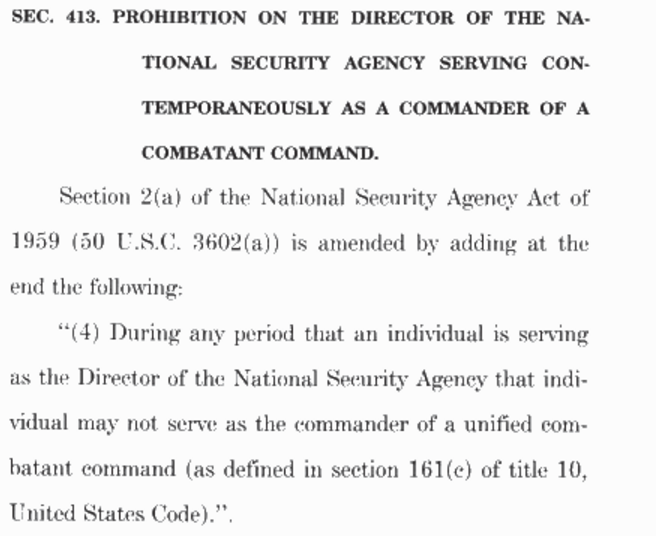I was interviewed (on Thursday) about the Flynn resignation and larger investigation into the Russia hack for Saturday’s On the Media. In what made the edit, I made one error (which I’ll explain later), but a key point I made holds. The leaking about Flynn and other Russian events are hypocritical and out of control. But they may create pressure to fix two problems with the current investigations into the Russian hack: the role of Jeff Sessions overseeing the DOJ-led investigations, and the role of Trump advisory officials Devin Nunes and Richard Burr overseeing the most appropriate congressional investigations.
In this post I’ll look at the latter conflicts. In a follow-up I’ll look at what the FBI seems to be doing.
As I noted in the interview, contrary to what you might think from squawking Democrats, there are five congressional investigations pertaining to Russian hacks, though some will likely end up focusing on prospective review of Russian hacking (for comparison, there were seven congressional Benghazi investigations). They are:
- Senate Intelligence Committee: After months of Richard Burr — who served on Trump’s campaign national security advisory council — saying an inquiry was not necessary and going so far as insisting any inquiry wouldn’t review the dossier leaked on Trump, SSCI finally agreed to do an inquiry on January 13. Jim Comey briefed that inquiry last Friday, February 17.
- House Intelligence Committee: In December, James Clapper refused to brief the House Intelligence Committee on the latest intelligence concluding Russian hacked the DNC with the goal of electing Trump, noting that HPSCI had been briefed all along (as was clear from some of the leaks, which clearly came from HPSCI insiders). In January, they started their own investigation of the hack, having already started fighting about documents by late January. While Ranking Democratic Member Adam Schiff has long been among the most vocal people complaining about the treatment of the hack, Devin Nunes was not only a Trump transition official, but made some absolutely ridiculous complaints after Mike Flynn’s side of some conversations got legally collected in a counterintelligence wiretap. Nunes has since promised to investigate the leaks that led to Flynn’s forced resignation.
- Senate Armed Services Committee: In early January, John McCain announced he’d form a new subcommittee on cybersecurity, with the understanding it would include the Russian hack in its focus. Although he originally said Lindsey Graham would lead that committee, within weeks (and after Richard Burr finally capitulated and agreed to do a SSCI inquiry), McCain instead announced Mike Rounds would lead it.
- Senate Foreign Relations Committee: In December, Bob Corker announced the SFRC would conduct an inquiry, scheduled to start in January. At a hearing in February, the topic came up multiple times, and both Corker and Ben Cardin reiterated their plans to conduct such an inquiry.
- Senate Judiciary Subcommittee on Crime and Terrorism: After Graham was denied control of the SASC panel, he and Sheldon Whitehouse announced they’d conduct their own inquiry, including a prospective review of “the American intelligence community’s assessment that Russia did take an active interest and play a role in the recent American elections.”
All the while, some Senators — McCain, Graham, Chuck Schumer, and Jack Reed — have called for a Select Committee to conduct the investigation, though in true McCainesque fashion, the maverick has at times flip-flopped on his support of such an inquiry.
Also, while not an investigation, on February 9, Jerry Nadler issued what I consider (strictly as it relates to the Russian hack, not the other conflicts) an ill-advised resolution of inquiry calling for the Administration to release materials relating to the hack, among other materials. Democrats in both the House and Senate have introduced legislation calling for an independent commission, but have gotten no support even from the mavericky Republicans.
As you can see from these descriptions, it took pressure from other committees, especially Lindsey Graham getting control of one of the inquiries, before Richard Burr let himself be convinced by SSCI Vice Chair Mark Warner to conduct an inquiry. Thus far, Mitch McConnell has staved off any Select Committee. As soon as SSCI did claim to be launching an investigation, a bunch of Republicans tried to shut down the others, claiming it was all simply too confusing.
Let me be clear: as I noted in the OTM interview, the intelligence committees are the appropriate place to conduct this investigation, as it concerns really sensitive counterintelligence matters — people who could be witnesses to it are getting killed! — and an ongoing investigation. The only way to conduct a responsible inquiry is to do so in secret, and unless a select committee with clearance is formed, that means doing so in the dysfunctional intelligence committees.
That’s made worse by Nunes and Burr’s obvious conflicts, having served on Trump’s pre-inauguration advisory teams (at a time when Mike Flynn was chatting about ongoing sanctions with Russia), and their equally obvious disinterest in conducting the investigation. Remember that the intelligence committees successfully bolloxed up the independent investigation into Iran-Contra. While neither Nunes nor Burr is as smart as Dick Cheney, who had a key role in that intentional bolloxing, Democrats should be cognizant of the ways that such bolloxing has happened in the past.
And now that SSCI has finally started its inquiry, Ali Watkins published an uncharacteristically credulous report on Burr’s role in the investigation, slathering on the colorful vocabulary — “brutally yanked;” “underground cohort;” “dark shadow of Langley;” “Wearily, they’re trudging forward on a probe littered with potential political landmines;” — before portraying the allegedly difficult position Burr is in:
That he’s now in charge of the sweeping Russia inquiry puts the North Carolina Republican in between a rock and a hard place. Since taking over the helm of the intelligence committee, Burr has pressed for more active and aggressive oversight, and has kept a rigorous travel schedule to match. But his decisive reelection victory in November came at a cost — throughout the contentious race, Burr towed Trump’s line, and hasn’t yet directly criticized the White House publicly.
But Burr has shown no indication that he’s ever angled for a Trump administration job, and says he’s not running for re-election. How seriously he takes his obligation to carry his president’s water remains to be seen.
Burr has been slammed by colleagues in recent days, who fear he’s slow-rolling an investigation into a fast-moving story. But much of the inquiry’s slow start was due to bureaucratic wrangling — some intelligence agencies insisted products be viewed on site rather than sent to the Hill, and some of the intelligence was so tightly controlled that it was unclear if staffers could even view it.
This is just spin. There is abundant public record that Burr has thwarted oversight generally (he has said things supporting that stance throughout his history on both the Senate and House Intelligence Committee, even ignoring his role in covering up torture, and Watkins’ earlier incorrect claims about Burr’s open hearings remain only partly corrected). There is no mention in this article that Burr was on Trump’s national security advisory committee. Nor that SSCI had reason to do hearings about this hack well before January 2017, back when it might have made a difference — at precisely the time when Burr apparently had time to advise Trump about national security issues as a candidate. Plus, it ignores all the things laid out here, Burr’s continued equivocation about whether there should even be a hearing.
There is no reason to believe Burr or Nunes intend to have a truly rigorous investigation (bizarrely, Warner seems to have had more success pushing the issue than Schiff — or Dianne Feinstein when she was Vice Chair — though that may be because the Ranking position is stronger in the Senate than in the House). And history tells us we should be wary that their investigations will be counterproductive.
As I noted, on Friday — the Friday before a recess — Jim Comey briefed the SSCI on the Russian hack. That briefing was unusual for the date (regular SSCI meetings happen on Tuesday and Thursday, and little business of any kinds happens right before a recess). Reporters have interpreted that, along with the presumed silence about the content of the briefing, as a sign that things are serious. That may be true — or it may be that that was the only time a 3-hour briefing could be scheduled. In the wake of the briefing, it was reported that the SSCI sent broad preservation requests tied to the inquiry (that is, they sent the request long after the inquiry was started). And while the press has assumed no one is talking, the day after the briefing, Reuters reported outlines of at least three parts of the FBI investigation into the Russian hack, attributed to former and current government officials.






